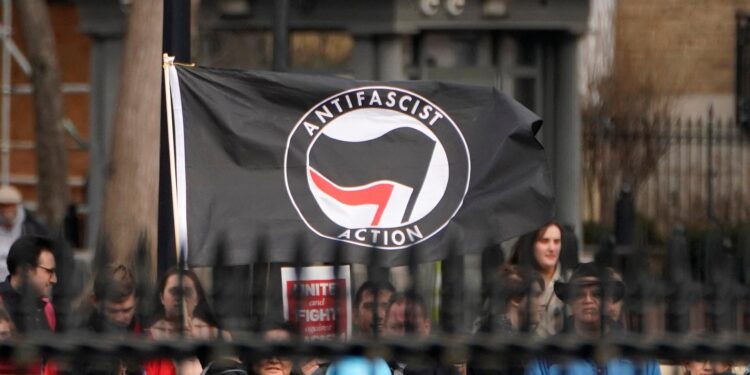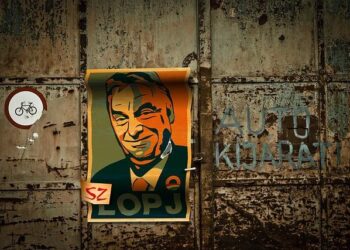Hungary has announced plans to designate Antifa as a terrorist organization, aligning itself with former U.S. President Donald Trump’s hardline stance against the activist movement. Prime Minister Viktor Orbán made the declaration amid escalating concerns over political violence and radical activism in Europe. The move signals a growing trend among right-wing leaders to classify left-wing groups as security threats, raising questions about the implications for civil liberties and political dissent in Hungary and beyond.
Hungary Mirrors US Move with Antifa Terrorist Group Designation
Hungary’s government, led by Prime Minister Viktor Orbán, has officially announced plans to label Antifa as a terrorist organization, aligning its stance closely with recent actions taken by the United States under the Trump administration. This move is seen as part of a broader crackdown on groups perceived to incite violence and civil unrest. Orbán’s decision underlines a growing trend among conservative governments to classify Antifa’s activities as threats to national security, marking a significant shift in the political landscape of Europe.
The designation carries wide-ranging implications, affecting how law enforcement agencies monitor and respond to Antifa-linked demonstrations or actions. Critics argue that such measures risk stifling legitimate protest, while supporters claim that tougher policies are necessary to curb escalating violence. Below is a brief overview of the key differences in how the US and Hungary are implementing their Antifa policies:
- United States: Federal designation allows for increased surveillance and potential federal charges.
- Hungary: National law enforcement empowered to classify and prosecute Antifa activities as terrorism.
| Country | Designation Type | Law Enforcement Action |
|---|---|---|
| USA | Federal Terrorist Group | FBI monitoring & federal prosecution |
| Hungary | National Terrorist Organization | Enhanced police powers & terrorism charges |
Political Implications and Regional Reactions to Orban’s Stance
Orban’s declaration to classify Antifa as a terrorist organization has stirred a ripple effect across the European political spectrum. Aligning with former U.S. President Donald Trump’s earlier rhetoric, this move signals a firm stance against left-wing activism perceived as disruptive. Supporters of the Hungarian government laud the decision as a necessary measure to maintain national security and public order, emphasizing the need to combat violent extremism irrespective of ideological origins. However, critics argue that this designation may be a strategic attempt to suppress dissent and consolidate power by labeling political opposition as a security threat.
- EU Officials express concern over potential erosion of democratic freedoms.
- Neighboring Countries maintain cautious distance, monitoring regional stability.
- Human Rights Organizations warn about misuse of anti-terror laws against civil movements.
| Country | Official Reaction | Potential Impact |
|---|---|---|
| Austria | Calls for dialogue | Heightened border security |
| Poland | Supportive stance | Closer political ties |
| Germany | Criticism of crackdown | Legal challenges anticipated |
Analyzing Security Measures and Policy Recommendations for Counterterrorism
In light of recent political developments, Hungary’s strategic decision to label Antifa as a terrorist organization mirrors prior moves by the Trump administration, marking a notable shift in counterterrorism policy frameworks. This approach emphasizes stricter surveillance, intelligence sharing, and enhanced law enforcement powers targeting groups perceived as domestic threats. However, experts caution that such designations must be carefully balanced with respect for civil liberties to avoid fueling further political polarization or misidentification of legitimate protest activities as terrorism.
To bolster the effectiveness of these security measures, policy recommendations focus on comprehensive risk assessments and inter-agency collaboration. Key actionable steps include:
- Enhanced community engagement: Building trust with local populations to improve information flow and early warning systems.
- Clear definitional frameworks: Establishing precise criteria for terrorist designation to ensure transparency and legal consistency.
- Strengthened oversight mechanisms: Instituting independent review boards to monitor intelligence and enforcement activities.
- Cross-border cooperation: Coordinating efforts with EU partners to address transnational radicalization and financing.
| Security Measure | Intended Impact | Potential Challenges |
|---|---|---|
| Designation of Antifa as terrorist | Legal grounds for prosecution and asset freezes | Risk of civil rights infringement |
| Inter-agency intelligence sharing | Rapid response to threats | In Summary As Hungary moves to officially designate Antifa as a terrorist organization, following the precedent set by former U.S. President Donald Trump, this development signals a growing trend among certain governments to classify activist groups under terrorism laws. The decision is likely to intensify debates around political dissent and security measures within Hungary and beyond, underscoring the ongoing global tensions over how to balance national safety with civil liberties. ADVERTISEMENT |
















